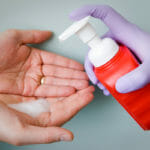Having great leadership at the top of an organization makes everything run smoother. From the patient’s or customers’ perspective to the employees working underneath management, a great leader affects every facet of a company.
In fact, unsatisfactory bosses are the number one reason why an employee quits according to LinkedIn.
You can imagine how the impact of a great leader only heightens when you consider a high-intensity profession such as nursing.
Let’s take a look at what qualities make up a great Director of Nursing (DON).
What is the Role of a Director of Nursing in Healthcare?
IN THIS ARTICLE
A Director of Nursing (DON) is a crucial member of any healthcare organization, including hospitals, outpatient care centers, long-term care facilities, and nursing homes.
Essentially, the DON is responsible for overseeing the nursing staff and ensuring that they provide high-quality patient care.
The DON is responsible for:
- Managing the nursing staff
- Developing and implementing nursing policies and procedures
- Ensuring compliance with federal regulations
- Managing the nursing department’s budget
- Ensuring the entire department operates efficiently
The director of nursing works closely with other healthcare professionals, including physicians, nurses, and other healthcare staff, to ensure that patients receive the best possible care.
DONs must promote a safe and healthy work environment for the nursing staff and ensure that they have all the necessary resources required to provide high-quality patient care.
In addition, the DON is responsible for managing the day-to-day operations of the nursing department, including staffing, scheduling, and training.
All nursing staff must be properly trained and have the skills and knowledge needed to successfully complete their duties.
Overall, the DON plays a vital role in the healthcare industry, and their contributions are essential to the success of any healthcare organization.
Important Note: We understand that being a Director of Nursing is challenging, to say the least. Beyond the scope of a nursing manager, DONs must oversee multiple nursing units, departments, or programs. That includes reviewing nursing manager performance and assuring that the organization’s goals and quality outcomes have been met.
No one is perfect, and listed below are qualities that you can work toward, if you don’t feel you possess them yet.
With that said, let’s get into the top 18 qualities of a great director of nursing.
Each section of skills is built around a category, including leadership, communication, problem-solving, organization, and passion.
Leadership Skills

1. Strong Leadership and Team-Building Skills
This goes without saying, but to succeed in a DON position you must have strong leadership and team-building skills.
What does that mean? it means you’ll have a collection of skills we list below, but also, you are reliable, dependable, knowledgeable, and can complete your job while also assisting others.
Effective leaders make their staff feel included, involved, and engaged in their day-to-day tasks.
Your nurses look to you for expertise and other professionals in your organization, such as physicians, rely on you to assist in their day-to-day, as well.
2. Motivational Skills
There are going to be days that a nursing team feels overwhelmed, exhausted, and low energy.
A director of nursing needs to help motivate the team to ensure they are providing high-end patient care at all times.
Ways to motivate a nursing staff include:
- Leading by example
- Feedback and praise
- Support
- Always demonstrating respect
- Provide ongoing development opportunities
- Allowing each nurse to have their own voice
A highly motivated nursing staff is a successful and efficient staff.
3. Commitment to Professional Development
A Director of Nursing is responsible for leading and managing a team of nurses, and as such, it is important for them to keep up with the latest developments in the field of nursing.
Professional development and growth are essential for a Director of Nursing to stay up-to-date with the latest trends and practices in nursing.
One way a Director of Nursing can develop professionally is by seeking out mentorship opportunities.
Having a mentor can help a Director of Nursing gain valuable insights and experience from someone who has already been through the same challenges they may face in their career.
Another way a Director of Nursing can develop professionally is by pursuing additional education and training.
This can include attending nursing conferences, workshops, and seminars, as well as pursuing advanced degrees in nursing or related fields.
4. Dependability
One of the top qualities of a successful Director of Nursing is dependability.
A dependable Director of Nursing is someone who can be counted on to provide guidance and support to their team, especially during challenging times.
They are expected to be a constant source of direction and accountability, ensuring that everyone on the team is held to the same high standards.
Dependability is a key component of building trust and respect with team members.
When a Director of Nursing is dependable, team members feel confident in their ability to lead and trust that they will be there when needed most.
This level of trust and respect fosters a positive work environment, where team members are motivated to do their best and work collaboratively to achieve goals.
5. Patience
Patience is an essential quality for a Director of Nursing to possess. You must be able to remain calm and collected in difficult situations, especially when dealing with families.
It is important to understand that these situations can be emotionally charged, and the Director of Nursing must be able to handle them with grace and professionalism.
One way to cultivate patience is to practice mindfulness. Mindfulness is the practice of being present in the moment, without judgment.
By practicing mindfulness, the Director of Nursing can learn to remain calm and focused, even in stressful situations.
Communication Skills

6. Effective Communication
Almost any situation, from a stressful challenge to the normal day-to-day, can be improved by effective communication.
A DON who possesses strong communication skills can create a positive work environment, build trust among team members, and improve patient care outcomes.
Poor communication leads to a lack of clarity which creates doubt in nurses, which is never a good thing.
Beyond a DON’s own nursing staff, effective communication can be valuable with interacting with patients, families, and more senior leadership.
What exactly does effective communication entail?
Effective communication involves more than just speaking clearly and articulating ideas. It also requires active listening, empathy, and collaboration.
A Director of Nursing who listens actively to team members and patients can better understand their needs and perspectives, which can lead to improved patient care outcomes.
That leads us to our next quality.
7. Listening Skills
Listening is a leadership skill that helps directors of nursing problem-solve, establish better relationships with their team, and develop trust.
A good listener is someone who is attentive, empathetic and understands the needs of their team.
Directors of nursing who possess good listening skills are more likely to create a positive work environment for their team and be able to identify the needs and concerns of their team members and provide them with the necessary support and resources to ensure that they can perform their duties effectively.
Effective listening also helps DONs identify and resolve issues before they escalate. By listening to your team members, you can identify areas of improvement and take the necessary steps to address them.
This helps to create a culture of continuous improvement and ensures that the team is working towards achieving its goals.
In addition, good listening skills also help DONs build trust with their team. When team members feel that their concerns are being heard and addressed, they are more likely to trust their director of nursing and follow their lead, which creates a more cohesive unit.
8. Empathy
Many nurses are wary of leaving the bedside and getting into leadership positions for fear of losing the essence of what makes them a nurse.
However, if you’ve ever worked in the healthcare field, you understand the stress, demands, and burnout that is commonly experienced by everyone involved—and that empathy is a valuable skill whether you’re at the bedside or not.
While you must push your nurses to continue succeeding and performing at a high level, empathy is a powerful characteristic for a DON to have.
Empathy is the ability to understand and share the feelings of others. By practicing empathy, you can better understand the perspectives of families and staff, which can help you navigate difficult situations more effectively.
Problem-Solving Skills
9. Problem-Solving
Directors of Nursing are faced with challenging scenarios each and every day. From budgeting decisions to ensuring patient-to-nurse ratios, being able to efficiently solve daily issues is a critical quality that a DON must possess.
Directors of Nursing should be able to tackle hurdles by assessing the situation, identifying the root problem, and developing a practical solution by utilizing critical thinking skills.
In addition, being able to “see around corners” and preventing potential future problems can be valuable.
11. Ability to Delegate
No one can do everything by themselves and it is actually a skill to be able to delegate tasks.
Delegation involves assigning tasks to individuals with the appropriate skills and knowledge to complete them. It requires trust in the team and the ability to identify the strengths and weaknesses of each team member.
A successful DON should be able to delegate tasks confidently and efficiently, ensuring that each team member understands their role and responsibilities.
Effective delegation has several benefits, including:
- Improved productivity
- Job satisfaction
- Employee engagement
When team members are assigned tasks that align with their skills and interests, they are more likely to be engaged and motivated to complete them. This, in turn, leads to improved job satisfaction and increased productivity.
To delegate effectively, a DON must communicate clearly and effectively with the team. This includes providing clear instructions and expectations, setting realistic deadlines, and providing support and guidance when needed.
12. Adaptability & Flexibility
A Director of Nursing must be able to adapt to changes in the healthcare industry, including new regulations and technologies.
Healthcare is constantly changing with medical advances and new methodologies. You cannot be overly rigid.
Directors of nursing must also be able to adjust their management style to meet the needs of their staff and patients.
Flexibility also extends to the ability to manage unexpected situations. A DON must be able to think on their feet and make quick decisions when necessary.
- Emotional Intelligence
Everyone understands the value of high intelligence, but you could argue that high emotional intelligence (EQ) flies under the radar.
A DON with high emotional intelligence is able to take setbacks and challenges in stride without overreacting or becoming flustered.
A level-headed director of nursing promotes a healthy work environment and is not only beneficial to the DON themself, but the patients and nursing staff, too.
14. Stress Management
Being a director of nursing does not come without stress.
DONs often encounter stressful situations such as scheduling nurse shifts, worrying about particular placements, and just general nurse staffing. The hiring, turnover, and training of nurses can also be a source of stress. Therefore, stress management is a crucial quality for Directors of Nursing to possess.
In high-intensity settings such as a healthcare facility, a cool, calm, and collected DON can set the tone for their nurses.
Here are a few tips to help manage your stress and avoid burnout as a DON:
Mindful meditation: This technique involves focusing on the present moment and acknowledging one’s thoughts and feelings without judgment.
Time management: Directors of Nursing can reduce stress by prioritizing tasks, delegating responsibilities, and setting realistic deadlines
Healthy work-life balance: A healthy work-life balance can be achieved by setting boundaries, taking breaks, and engaging in activities outside of work
Organization Skills
A Director of Nursing is responsible for managing and organizing the nursing department and nursing staff.
From hiring and retaining staff to assistance on the administrative side of the facility, organizational skills are key.
Here are some of the management and organizational responsibilities and qualities that a DON should possess.
15. Administrative Skills
A Director of Nursing should have strong administrative skills, including the ability to manage budgets, develop policies and procedures, and maintain accurate records.
They should also be able to analyze data and use it to improve the quality of care provided by the nursing department.
16. Hiring and Staffing
A Director of Nursing should have excellent hiring skills and be able to recruit and retain skilled nursing staff.
In addition, a DON should ensure that the healthcare facility has the proper nurse-to-patient ratios and is adequately staffed.
Due to the recent nurse staffing shortage, this has been a bit of a stressor.
One solution that many directors of nursing have implemented is utilizing a nurse staffing agency. Outsourcing nurse staffing can keep placements full, ratios in check, and skilled nurses in your facility.
Nursing Passion

17. A passion for nursing
A Director of Nursing who is passionate about their role is more likely to inspire their staff to achieve their goals.
Passionate leaders are deeply committed to their work and are driven to make a difference in the lives of their patients and staff.
They have a clear vision of what they want to achieve, and they work tirelessly to make it a reality.
Passionate Directors of Nursing are often more creative and innovative than their counterparts.
They are always looking for new ways to improve patient outcomes and staff satisfaction. They are not content with the status quo and are always looking for ways to achieve better results.
18. Understanding of nursing
One way to instantly connect with your nursing staff is by having been a nurse before. It makes a world of difference when nurses know that their DON has “been there and done that” before in the nursing industry.
Having had a nursing career is a pretty common qualification for becoming a director of nursing, but it is still worth noting for the reliability aspect of the job.
Let NurseRegistry Make Your Life as a Director of Nursing Easier
NurseRegistry is a premier nurse staffing agency that is dedicated to providing top talent to healthcare facilities.
As you are aware, being a DON can be challenging and a great deal of that stress comes from nursing shortages, poor patient-to-nurse ratios, and filling placements.
With NurseRegistry, having experienced, licensed, and professional nurses provide efficient nursing care is never a concern.
Our coordination team works directly with you to ensure you receive the exact nursing candidates you need – often within 48 hours.
Elevate patient care and reduce staff stress with our nurses today. Click below to discover more ways NurseRegistry can benefit your healthcare facility.
Frequently Asked Questions about Directors of Nursing
What are the key competencies for a Director of Nursing?
A Director of Nursing must have a strong understanding of healthcare operations, including staffing, budgeting, and regulatory compliance. They must also be able to lead and motivate a team of nurses, manage conflicts, and communicate effectively with patients, families, and other healthcare professionals. In addition, they should possess strong critical thinking skills and the ability to make sound decisions under pressure.
What are some examples of strong leadership skills in nursing?
Strong leadership skills in nursing include the ability to inspire and motivate others, communicate effectively, delegate tasks, and make informed decisions. A Director of Nursing should also be able to manage conflicts, provide constructive feedback, and foster a positive work environment.
How can a nurse develop the skills needed to become a Director of Nursing?
Nurses can develop the skills needed to become a Director of Nursing by pursuing advanced education and training, seeking out leadership opportunities, and gaining experience in healthcare operations and management. They can also benefit from mentorship and networking with other nursing leaders.
What are some common strengths and weaknesses of nursing leaders?
Common strengths of nursing leaders include strong communication skills, the ability to inspire and motivate others, and a commitment to patient-centered care. Weaknesses may include a lack of experience in healthcare operations and management, difficulty managing conflicts, and a tendency to micromanage.
What are some ways to prepare for a Director of Nursing interview?
To prepare for a Director of Nursing interview, candidates should research the organization and its healthcare operations, review the job description and requirements, and prepare responses to common interview questions. They should also be prepared to discuss their leadership style, experience managing conflicts, and commitment to patient-centered care.







